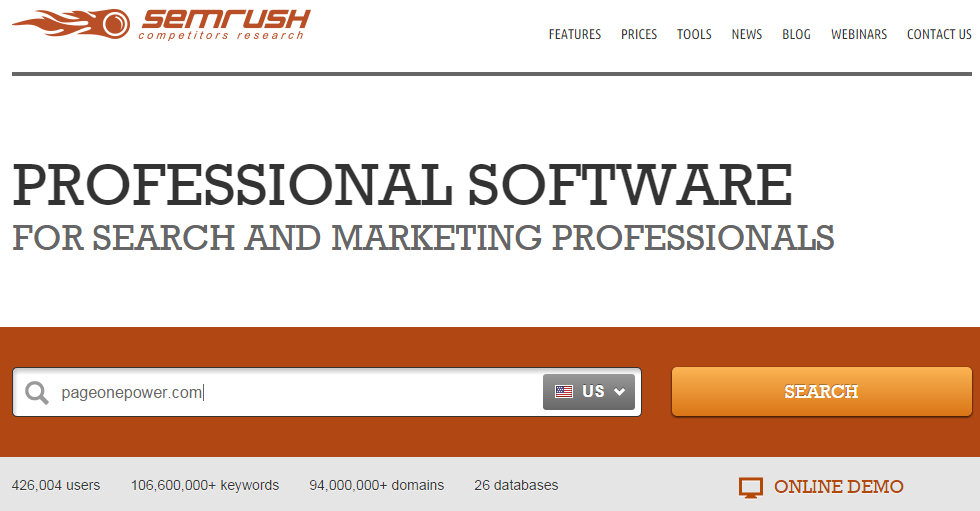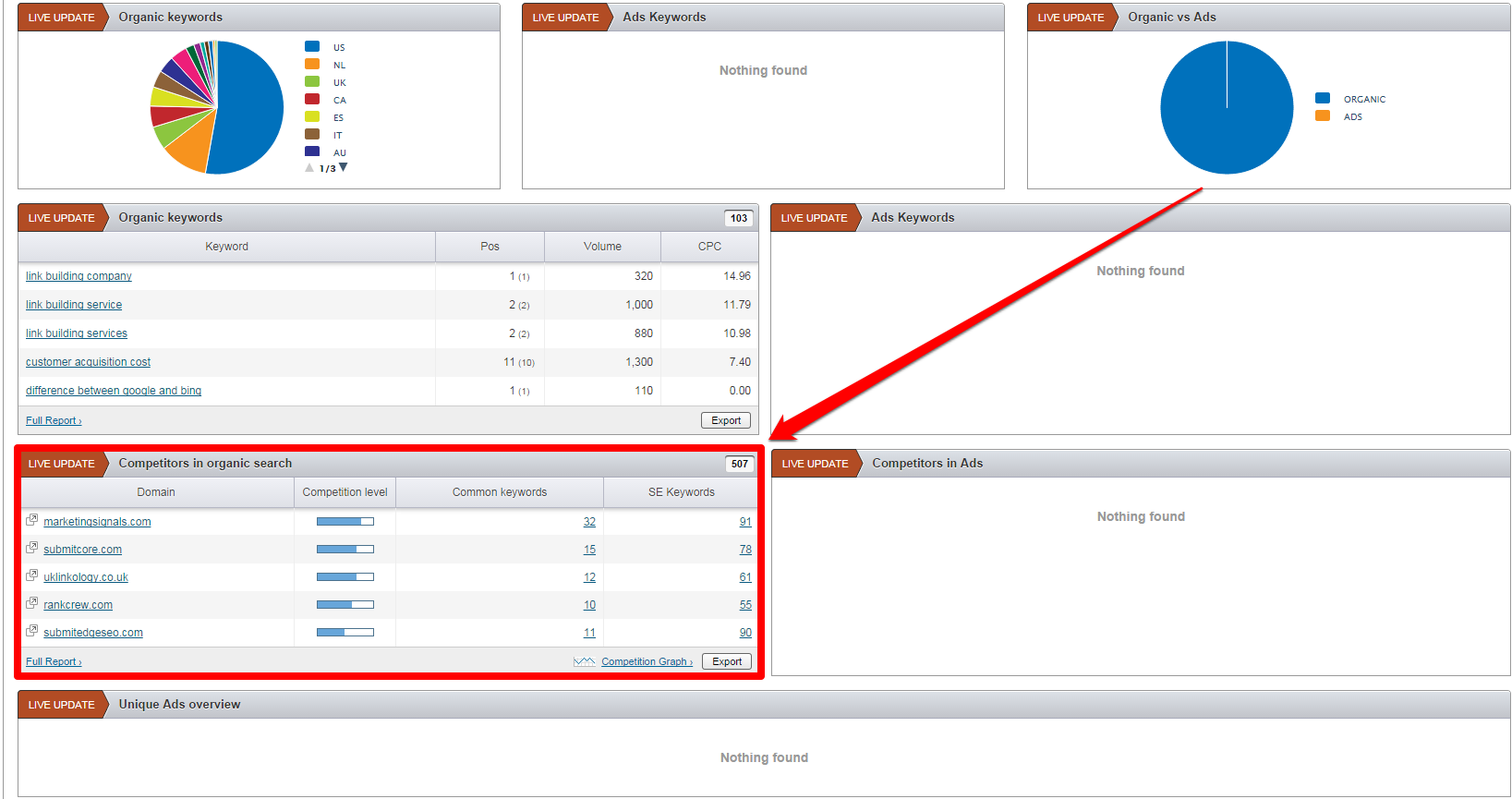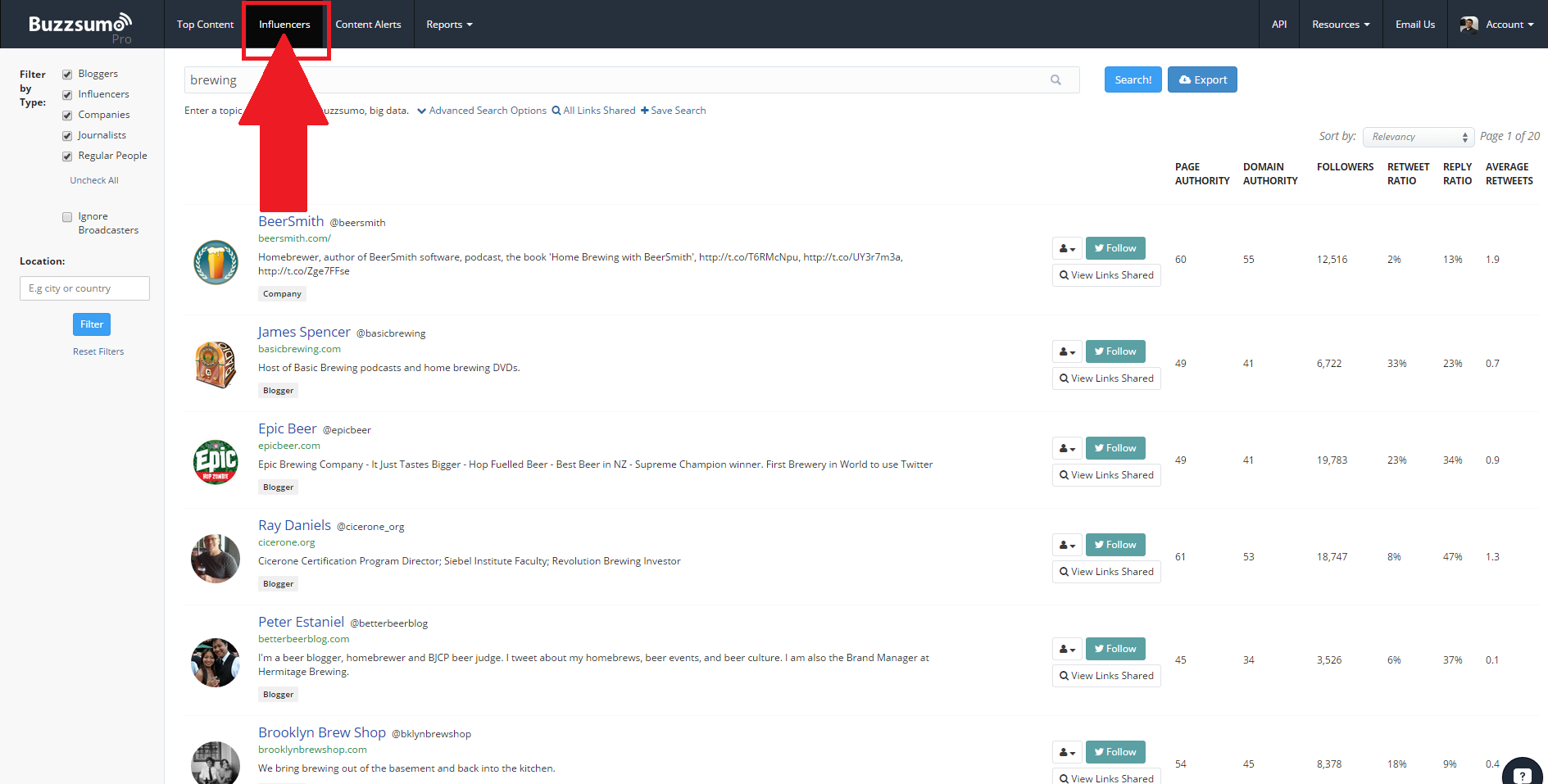Link building is no longer a one-off marketing cost that you can fire and forget. Link building needs to be intelligently and appropriately directed; link building needs to be an accurate representation of your company.
If you're going to build links that stand the test of time, you can't simply jump straight into the link building process. You'll need to make a realistic and intelligent plan forward.
One of the most crucial processes you must complete before starting a link building project is niche analysis. A thorough niche analysis can provide numerous insights that will guide decisions regarding strategy development in your campaign. A complete and full understanding of your niche is fundamental to link building.
When analyzing your niche there are four elements to consider:
- Competitors
- Audience
- Influencers
- Trends
Let’s start with audience.
Competitor Analysis
Keeping an eye on your competition is a basic and necessary business strategy. In terms of link building, a competitor analysis offers numerous benefits. In order to begin the competitor analysis process, you must first compile a list of competitors including:
- Direct competitors
- Indirect competitors
- Websites/companies ranking highly for relevant keywords (search competitors)
The first two should be pretty straightforward, but the third could take some research. One way to find these sites is through SEMrush.
Start by entering your domain into the search box – for example we will use Page One Power.
After typing in your domain you will be taken to a dashboard with a wealth of information. For the purpose of competitor research, we want to look at the “Competitors in organic search” section.
By looking at this section we can see an overview of sites that have common keywords with Page One Power according to SEMrush.

This is an easy way to find sites that are ranking for similar keywords to your business, and belong on your competitor list.
Another way to find these sites is by manually searching for related keywords to see who is ranking. For help finding related keywords, check out Jesse Stoler’s Tutorial Tuesday on using Übersuggest to create keyword lists.
Once you have created a comprehensive list of competitors, it’s time to begin analysis. Since we are preparing for a link building campaign, it makes sense to analyze your competitors from a standpoint of links.
The best ways to do this is to examine their backlink profiles using a backlink tool. There are a number of tools available:
Utilizing these tools you can assemble a digestible backlink report that you can start to analyze and use to draw some meaningful conclusions. All of these tools will also allow you to sort by top linked pages, which will allow you to quickly and easily see which pages are getting the most links.
For a step-by-step guide on compiling these reports, read Jon Ball’s post on Search Engine Watch.
Understanding competitors' backlink profiles will help with:
- Link prospecting
- Content ideation
- Insight into competitive atmosphere
- Understanding the linking environment of the niche
One of the main benefits of analyzing your competitors’ backlinks is that it can aid with link prospecting. Sites that link to your competitors are great link prospects because typically if they link to a competitor, it would also make sense for them to link to you. However, you should always do a quality check before blindly pursuing links from these sites.
Backlink analysis of your competitors can also be helpful for content ideation. Observing which types of content have garnered a significant amount of links for your competitors can help you generate some content ideas for your own project. You don’t want to simply copy your competitors, but rather take something that has a lot of inbound links and update or improve it.
Examining your competitors’ backlinks will also give you some insight into the competitive atmosphere within your niche. Looking at the number of incoming links your top competitors have will give you a good indication of what it might take to rank highly within your niche. This information can be very helpful for determining the size and scope of your link building campaign.
Scrutinizing the backlink profiles of your competitors will also provide you with a better understanding of the linking environment within your niche. By looking at your competitors’ links, you can see whether sites tend to link out relatively freely within your niche, or if links are harder to come by.
Once you have conducted a thorough competitor analysis, it’s time to turn your attention to another important group within your niche – your target audience.
Niche Audience Analysis
Analyzing your industry's audience is essential to all aspects of marketing, and link building is no different. Truly, understanding your customers and their pain points should be fundamental to your business.
For link building, you should have a broader understanding of the type of people attracted to your industry.
Some of the data from your competitor analysis can be used for buyer persona analysis as well, because normally your competitors will have the same target audience. For example, examine the sites found through your competitors’ backlink profiles as many of these sites will be relevant to your target audience – these are the sites you want links from.
You can also identify potential audience pain points through your competitors’ popular content. Again, this will help you generate ideas for content that will not only drive links, but also be popular with your buyer personas.
Once again I refer to Jon's writing on SEW - specifically, his post "Link Building With a Healthy Dose of Marketing: 8 Ways to Solve Problems for Free." The article is about eight different ways to find pain points in your industry. Solving these is likely to earn your company recognition, appreciation, and even links.
Industry Influencers
Industry influencers are by very definition people who play an important role within your industry.
Identifying influencers is important for a variety of reasons. Involving and engaging them can:
- Amplify your link building and marketing efforts
- Identify authoritative websites
- Drive strong relationships
- Determine industry trends.
BuzzSumo, a great tool still being fully developed, is useful for identifying a list of industry influencers. It's not fool proof, of course, but it'll give you a great starting point. It's predicated by social media influence, which of course doesn't always translate perfectly to authority. But, there's usually a strong correlation.
Just head into the tool and instead of the "Top Content" tab, make sure you use the "Influencer" tab:
Identifying niche influencers shouldn't be too much of a chore, since by very nature they're highly visible. BuzzSumo will definitely give you a strong jumping-off point.
Niche Trends
Fully understanding a niche means not just knowing what's happening in the industry, but also where current trends are headed.
Although it will likely have less impact at the start of your link building campaign, it will undoubtedly aid your efforts at one point or another.
Typically social media is a great place to monitor trends and current conversation within an industry - especially if you're monitoring industry influencer's feeds. However social media typically is a feed of what's currently happening, drowning out even fairly recent events of a month ago. I would recommend heading over to Google Trends and playing around with terms associated with the industry to get a full picture.
Google Trends isn't perfect by any means, but used in combination with social media it should grant a better understanding of the niche as a whole. Just check out my recent Tutorial Tuesday on how to use Google Trends to track industry shifts.
Recap
Building good links that make sense takes planning, understanding, and hard work. Niche analysis is imperative to build links both efficiently and intelligently, especially early on in a new campaign.
To better understand a new niche, research:
- Competitors
- Influencers
- Audience
- Trends
If you put in the work early it'll pay off in spades. If you try to shortcut your way to success, you'll regret it in the end.




